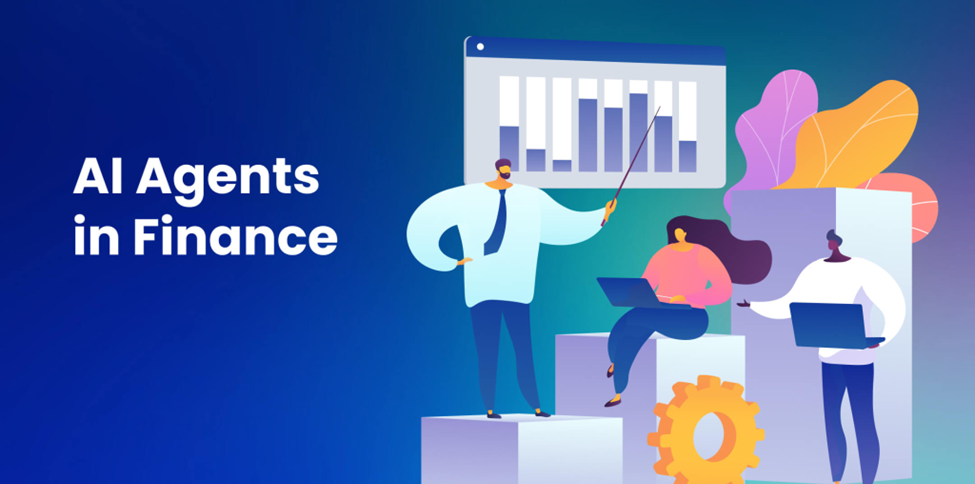In recent years, the role of artificial intelligence (AI) in the finance industry has been expanding at an unprecedented pace. With the increasing complexity of financial processes and the need for precision, financial institutions are increasingly adopting AI agents to streamline operations, reduce costs, and enhance decision-making. These advanced AI-driven tools, or finance AI agents, are transforming how businesses approach financial tasks such as reconciliation, fraud detection, compliance, and customer service. In this article, we will explore the transformative power of finance AI agents and how they are reshaping the finance industry.
- What Are Finance AI Agents?
- Why Are Finance AI Agents Important?
- 1. Increased Efficiency and Productivity
- 2. Improved Accuracy and Reduced Human Error
- 3. Enhanced Compliance and Regulatory Adherence
- 4. Data-Driven Decision Making
- Key Applications of Finance AI Agents
- 1. Financial Reconciliation
- 2. Fraud Detection and Prevention
- 3. Risk Management
- 4. Customer Service and Support
- The Future of Finance AI Agents
- Challenges and Considerations
- Conclusion
What Are Finance AI Agents?
Finance AI agents are specialized tools powered by artificial intelligence and machine learning algorithms designed to automate and optimize various financial operations. These agents can perform tasks ranging from simple calculations to complex data analysis, all in real-time, and with a high degree of accuracy. They are programmed to learn from vast amounts of data and provide insights that enhance business decision-making.
One of the key applications of finance AI agents is in financial reconciliation. Financial reconciliation is a critical task that involves comparing internal financial records with external statements to ensure accuracy. AI agents, specifically designed for reconciliation, can automate this tedious process, reducing errors and saving businesses significant time and resources. A powerful example of such an AI agent is the AI agent for Reconciliation, which utilizes advanced algorithms to detect discrepancies, match transactions, and provide actionable insights into financial discrepancies.
Why Are Finance AI Agents Important?
The increasing complexity of financial transactions, combined with the need for faster, more accurate decision-making, has made finance AI agents an invaluable tool for financial institutions. These AI tools offer several benefits that make them crucial in the finance sector.
1. Increased Efficiency and Productivity
One of the primary advantages of finance AI agents is their ability to automate repetitive tasks. Tasks like data entry, transaction matching, and account reconciliation that traditionally took hours can now be completed in a fraction of the time. With AI agents handling routine tasks, human employees can focus on more strategic initiatives, such as financial forecasting and analysis, improving overall productivity.
2. Improved Accuracy and Reduced Human Error
AI agents are designed to handle large datasets with precision and accuracy. This reduces the risk of human errors that can occur during manual processes, especially when dealing with complex financial data. For instance, the AI agent for Reconciliation uses machine learning to continuously improve its accuracy and efficiency in detecting discrepancies in financial records, ensuring that businesses remain compliant and avoid costly errors.
3. Enhanced Compliance and Regulatory Adherence
The financial industry is heavily regulated, and businesses must comply with an array of rules and standards. AI agents play a crucial role in ensuring compliance by continuously monitoring financial processes and flagging any potential violations. With real-time monitoring and automated reporting, financial institutions can stay ahead of regulatory requirements and avoid penalties.
4. Data-Driven Decision Making
AI agents are capable of processing vast amounts of financial data and generating insights that human analysts might miss. By identifying trends, anomalies, and patterns within financial data, AI agents provide financial teams with actionable insights that drive better decision-making. This data-driven approach helps businesses make informed decisions that align with market conditions and customer needs.
Key Applications of Finance AI Agents
Finance AI agents are being deployed in various areas of the financial industry. Some of the most common applications include:
1. Financial Reconciliation
Financial reconciliation is one of the most time-consuming and error-prone tasks for businesses. AI agents can automate this process by comparing transactions, detecting discrepancies, and ensuring that financial records are accurate. The AI agent for Reconciliation is specifically designed to streamline this process, reducing the need for manual intervention and allowing businesses to reconcile accounts more efficiently and accurately.
2. Fraud Detection and Prevention
AI-powered agents can identify suspicious patterns of behavior and flag potential fraudulent transactions in real-time. By analyzing large volumes of transactional data and comparing it to known fraud patterns, AI agents can detect anomalies that might go unnoticed by human analysts. This helps financial institutions prevent fraud before it happens and minimize the impact of fraudulent activities.
3. Risk Management
AI agents can assess financial risks by analyzing various factors such as market conditions, historical data, and economic trends. These agents provide financial institutions with a clearer picture of potential risks, allowing them to take proactive measures to mitigate them. With AI-driven risk management, businesses can make more informed decisions and better protect their assets.
4. Customer Service and Support
AI agents are also being used to enhance customer service in the finance sector. Chatbots and virtual assistants powered by AI can handle customer inquiries, provide support, and even process transactions. These AI agents can provide immediate responses to customer queries, improving customer satisfaction while reducing the workload on human customer service representatives.
The Future of Finance AI Agents
The future of finance AI agents looks incredibly promising. As AI technology continues to evolve, we can expect even more advanced and sophisticated agents that can handle an even wider range of tasks. For example, AI agents may soon be able to make real-time investment recommendations, analyze market trends, or even predict economic downturns before they occur.
Additionally, as financial data continues to grow in complexity and volume, the need for AI agents that can process and interpret this data will become even more important. Businesses will increasingly rely on these intelligent agents to stay competitive and agile in an ever-changing financial landscape.
Challenges and Considerations
While finance AI agents offer numerous benefits, there are also challenges associated with their implementation. One of the key challenges is data security. As AI agents process vast amounts of sensitive financial data, businesses must ensure that the systems they use are secure and comply with data protection regulations.
Another consideration is the potential for job displacement. As AI agents automate more tasks, there may be concerns about job losses in the finance sector. However, experts argue that AI will not replace human workers but will rather augment their capabilities, enabling them to focus on more strategic and creative tasks.
Conclusion
Finance AI agents are revolutionizing the way financial institutions operate. From improving efficiency and accuracy to enhancing compliance and decision-making, AI-powered agents are becoming indispensable tools for businesses in the finance sector. The AI agent for Reconciliation is just one example of how these agents are transforming key financial processes, and as AI technology continues to advance, we can expect even greater innovations in the finance industry. Businesses that embrace AI agents will be well-positioned to stay ahead of the competition and navigate the challenges of the ever-evolving financial landscape.

















